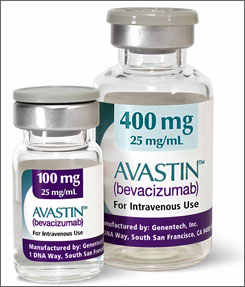As breast cancer patients anxiously await a June Food and Drug Administration (FDA) hearing to determine whether they will continue to have access to the life-saving drug Avastin, members of Congress are standing up for patients. Most notably Sen. David Vitter in the Senate and Rep. Kay Granger in the House, and now Rep. Alan Nunnelee, have recognized the dangerous precedent of the Avastin case. Including costs in the evaluation process will limit access of drugs to patients, interfere with the doctor/patient relationship and start American down the road to rationing.
Avastin is an (expensive) anti-cancer drug that has been proven to extend the life of patients. Some unfortunately do not see great gains – perhaps only a few months – while others live for years, crediting the drug for their survival. The FDA is attempting to “de-label” the drug, meaning the drug would be available if you could afford to pay for the drug out of your own pocket. Insurance and Medicare would no longer assist patients in paying for the drug.
At a House Appropriations Subcommittee hearing, Granger raised her concerns about the pending Avastin decision directly to the Secretary of Health and Human Services, Kathleen Sebelius. Granger pointed out that patients and doctors in her district have alerted her to the decision and believe having the Avastin option is a critical tool in fighting breast cancer. Granger pressed Sebelius to assure seniors that Medicare would continue to allow doctors the choice of prescribing Avastin and cover its costs. Sebelius could not or would not. Should the FDA move forward, cancer patients will be on their own – the first victims of the effort to “bend the health care cost curve.”
Granger pointed out that despite the testimony of patients, advocacy groups and doctors, the FDA continues to willfully ignore the thousands of patients who are alive today because of this drug.
At another House hearing, Rep. Alan Nunnelee stepped up to bat for patients as well quizzing an FDA official about the pending decision and its impact on breast cancer patients. The response leads one to believe those thousands of lives amount to a margin of error to the FDA as they continue to argue that the studies show the drug provides little “meaningful benefit”–a term they have yet to define.
But this issue is bigger that any one drug or any one disease. The FDA’s actions are part of a growing trend where government places cost above the quality of care. Prostate cancer patients have been fighting the bureaucrats for access to the drug Provenge and as Derek Hunter pointed out, it looks like Lucentis, a drug to treat macular degeneration is next on the hit list as the NIH is doing their own study to see if a less expensive drug can be used as a substitute–even though that drug isn’t approved by the FDA.
So while breast cancer patients are certain to be heartened by Ms. Granger and Mr. Nunnelee’s attention to this issue, the rest of us should be thankful as well. It will take a lot more members like them who are willing to stand up and fight the inevitable rationing that is on its way thanks to Obamcare.

COMMENTS
Please let us know if you're having issues with commenting.